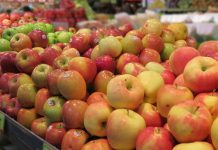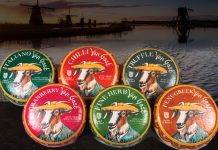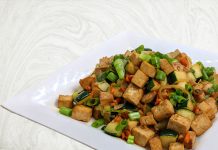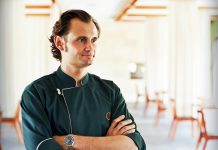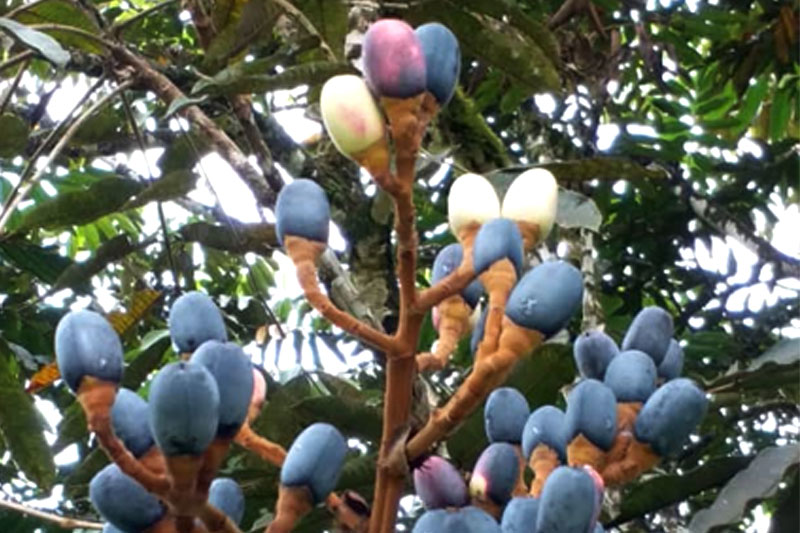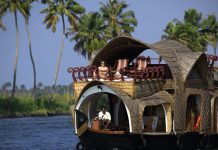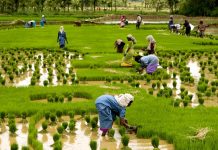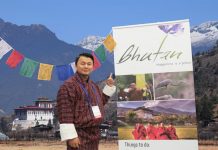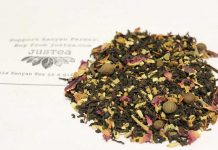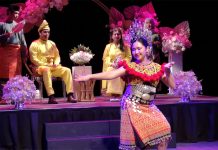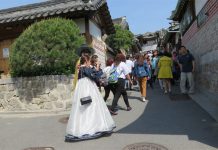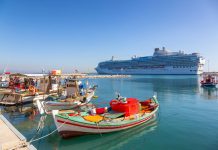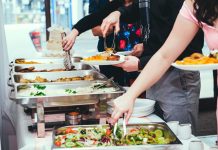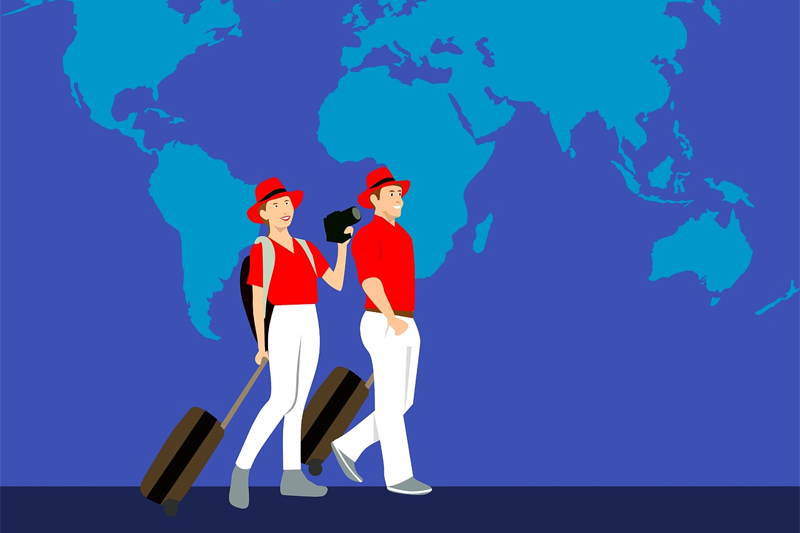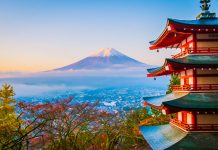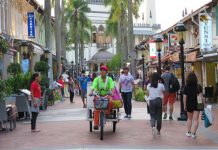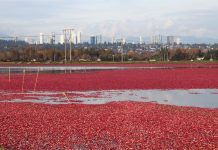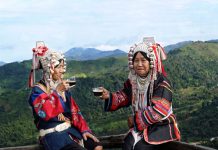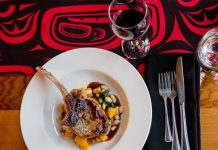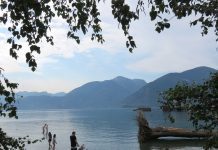Updated: September 23, 2017
How social enterprise, Siam Organic defy the odds to bring prosperity to impoverished rice farmers with their healthy and delicious Jasberry rice.
From the Australian outback to the rice fields of exotic Thailand, Peetachai (Neil) Dejkraisak’s drive to eradicate poverty among rice farmers, sparked the creation of Siam Organic with business partner, Pornthida (Palmmy) Wongphatharakul.
Siam Organic, one of Asia’s most successful social enterprises not only brought joy, health and prosperity to thousands of impoverished Thai rice farmers, but also develops nutritious foods with positive environmental and sustainability impact.
In 2015, rice production involved 5.4 million farming families, accounting for more than 17 million people across Thailand. This included labourers, entrepreneurs and government officials, according to 2016 statistics obtained from the Thailand Office of Agricultural Economics by The International Journal of Business & Management.
How it all began, the phenomenal impact that this super food has had on the growers, and what is in Jasberry that makes it so uniquely nutritious.
(SOUNDBITE OF ARCHIVED RECORDING)
The transcript of the interview has been edited for brevity and clarity.
AGNES CHUNG, HOST: Welcome to GlobalEAT, Neil. Neil is with Siam Organic and this afternoon we would like Neil to share with us a little bit about social enterprise, what his company has done to help the farmers in Thailand. Now Neil, tell us… what motivated you to start the social enterprise company that you have right now.
NEIL DEJKRAISAK:I was an MBA student and just like every young person I wanted to have a meaningful life … you know meaningful work. I think we’re all striving for that purpose … sense of purpose and some meaning in our life, and for me I feel that I would derive my purpose from doing something that would be good for society.
We have 17 million farmers in the country who are earning like 40 cents per day. That’s six times below the poverty line and that’s incredible. When I found that out about six years ago I felt like I needed to do something about it.
Never did I realize that I would start a company that six years later I’m talking to you right now and am still running the company. It has been extremely challenging but a wonderful learning experience.
CHUNG: I know with social enterprise there’s so many types of products you could focus on, why did you choose rice? Obviously it’s Thailand’s largest export but, why rice? Why not something else and why farmers?
DEJKRAISAK: You know as a Thai person, we grew up with rice. Most of our farmers grow rice in this country and they’re the one that are making the least income, so they’re the deepest in the poverty. For us rice is a vehicle to help these farmers get out of poverty. It also has cultural significance in Thailand.
CHUNG: Now, what’s the average salary of a Thai farmer per month?
DEJKRAISAK: Right now the Thai farmers, they’re only earning about 40 cents per day… so in a month… that’s $12 for a month. As far as research goes… it’s the lowest income for rice farmers in ASEAN countries, lower than Vietnam, lower than Burma, and this is because we have very low yield and high cost of production.
CHUNG: Now, why the name Jasberry? Is there a difference between Jasberry and Riceberry?
DEJKRAISAK: Jasberry is like a strain of rice which was developed through a non GMO natural crossbreeding. The unique property of Jasberry rice is, it has three times higher antioxidant than blueberry. It has extremely high level of antioxidant, and is also soft and delicious despite being whole grain. So you know it’s the uniqueness of the variety and this distinguishes it from other varieties of rice.
Related: The Best of Foods at THAIFEX 2017
The name communicates the benefit of this rice which has the aroma and softness of Jasmine, and also has the antioxidant benefit of the blueberry fruit. We believe what the consumers get when they buy Jasberry rice is, they’re getting the world’s healthiest rice. We say that with pride because we tested the nutrition with the lab… with the third party and we work closely with the farmer.
We know every step of the process of what went into growing this rice… so, you know, we can really say that it is grown with love. It is grown with a lot of care and it’s helping a lot of people.
CHUNG: So, what sort of impact has your social enterprise business had on the lives of farmers since your business started?
DEJKRAISAK: End of 2015, we had a third party social impact assessor called Shujog from Singapore. They came and they did an audit on our company and the result was that for one…right now, the farmers are earning 14 times higher income compared to the average rice farmer in Thailand, which allow them to send their children to school.
The second impact is actually their health. The farmers that grow Jasberry rice will keep about 25% for their personal and their family consumption. The farmers have reported increased health… reduced sickness and they actually feel much healthier.
I could sit here as an NGO and give to the farmers, right. As a social enterprise, we believe in sustainable solution to poverty and we believe that the only way to have a sustainable solution to poverty is to empower people. So these farmers are now trained they have more knowledge, they’re able to increase the yield, reduce the cost… they’re running the cooperative… running the factories themselves.
The rice mill is owned by a farmer cooperative and not owned by us, but we brought in experts to help train them. We try to help them with sources of financing. We partner with them every step of the way to build their capacity, and we believe that it is fundamentally…maybe this is not so tangible, but in the long run will allow them to prosper.
CHUNG: Where are most of your farmers and how many farmers are under your social enterprise right now.
DEJKRAISAK: Oh, I wouldn’t like I said… they’re under my social enterprise. They’re working with us… there are our partners…this year is about 1,800 family of farmers all in the Northeastern part of Thailand…in the Isan Province.
CHUNG: What are your future plans for Siam Organic?
DEJKRAISAK: Yeah, there are two missions that we try to accomplish… one is… over the next three years we hope to increase the number of farmers household that we work with to two thousand, which means that we will reach about 100,000 people. And the second goal is to distribute our range of innovative organic products all over the world.
Jasberry rice is one product… but, we also use Jasberry as the raw material for other products that we create. We believe that selling rice itself is not enough… rice market is very tough. And it doesn’t matter if it’s healthy or it has antioxidant. It’s still rice.
People will not pay a lot of money for it. It’s not coffee… it’s not cocoa… so we… we worked a lot on product development. Right now we have a range of what we call gluten free organic super pasta where Jasberry rice is used as a raw material… we are increasing the scale of our operation not just with one product but with several products… also to reduce the risk in the case that we cannot sell… you know one of the products.
We’re going to develop more and more products that are innovative. It’s simple. If you look at the Jasberry product… two things… it’s healthy and delicious. Being a company from Thailand… food is very important. We’re known for having the most delicious foods… so we want our products to be delicious and healthy.
Maybe it will cost you 50 cent more per day to switch from your brown rice to Jasberry rice, but it’s worth it and you’re helping a lot of people. Some people may feel like… it’s expensive, but I really feel that…we are at a point now… where we need to support not just our project, but any project that we do social and environmental good. We’re converting also chemical farmland to organic farmland and that’s reducing a huge amount of greenhouse gas emission.
We should encourage more organizations to be more conscious of the impact that they have, and I think every company have a responsibility to a level for society and for the environment as well as to the consumer of course.
We really believe that over the next 5-10 years, we’ll see many more companies just like us with a mission beyond making profit… a company with the purpose higher than the money, and we hope that actually our story is going to inspire more of those companies to start and to be successful in their respective areas.
CHUNG: Are you the only company so far that are helping farmers from a social enterprise perspective in Thailand?
DEJKRAISAK: There are a number of companies that do it. I would say the only thing that distinguished our company from others is that we have had commercial success. Most social enterprises fail because it’s tough. Now you want to do good as well… your chance of failure is very high and I will say the only reason that has kept us alive and going and making a very, very modest profit… is because… innovation.
Even on the farm level we use innovation to get increased yield for the farmer, to reduce cost. So innovation is so important for social enterprise to remain even competitive then we also hope that once you know… we get a bit bigger and we become more systematic and we’re able to share those know-how with other country … like Indonesia… like Philippines with their farmers. But we would be happy to really work with any, you know, rice companies because we feel that if they’re helping the farmers that they work with…then that’s good.
I think the consumer will decide which product they going to buy. Consumers are very intelligent nowadays, they can go online, they can read about it, they can do their own research, but on the social aspect, we feel that so many social enterprises are working in isolation and not coming out and sharing the story and working together. And you know we started this thing called organization called ‘Social Enterprise Thailand’ now… where Siam Organic is on the board of that organization… where we bring in all the social enterprise together and we support each other.
CHUNG: Now as a consumer, where can I buy your products?
DEJKRAISAK: Right now, it’s only available in Thailand, United States we hope that very, very soon it’ll be in Canada… over the next six month it will be, and I think at the start we’ll make it available on… like Amazon or something online where it’s easy free for you. And then of course we’ll go into a supermarket like Walmart and so forth where and Whole Foods where you have access to it.
CHUNG: Well thank you very much Neil for sharing your company with us. It’s very interesting and thank you again.
DEJKRAISAK: Thank you, it’s a pleasure.

